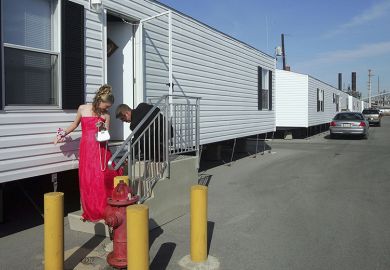About 80 per cent of applications by aspiring doctors came from only 20 per cent of schools, and about half applied from private or grammar schools, according to research published by the Medical Schools Council on 10 December.
The report by the Selecting for Excellence project, which was set up by the council last year to examine access issues at medical schools, said 31 per cent of first-year trainees came from private schools, despite only 7 per cent of pupils being educated in this sector.
In the report, titled Selecting for Excellence: Final Report, medical schools say they must do more to broaden their recruitment beyond well-connected children attending good schools.
It recommends changing expectations that applicants must have a work experience placement in a hospital or other clinical environments.
Critics have said that this expectation favours children of doctors or well-connected professionals who can arrange for their children to undertake work experience slots.
It also advises universities to use contextualised admissions when assessing candidates and expand their outreach activity to those areas not within reach of Britain’s 33 medical schools.
David Johnston, member of the Social Mobility and Child Poverty Commission, said medicine remained “one of the most difficult professions to access for those from less privileged backgrounds, particularly when it comes to areas like work experience”.
“Today’s report shows real commitment from individuals across the profession to try and change that and the Commission hopes that today’s recommendations will be implemented by the relevant actors in full for the benefit of the UK as a whole,” he said.
Les Ebdon, director of fair access to higher education, said he welcomed the report’s “focus on activities to raise aspiration and attainment, work experience and the use of contextual information”.
“Improving access to the higher education courses that lead to professional careers such as medicine is vital to creating a more socially mobile society,” said Professor Ebdon.
“The report and guidance will help medical schools work harder and smarter to ensure that everyone who has the potential to become an excellent doctor has the opportunity to do so, regardless of their background,” he added.
Register to continue
Why register?
- Registration is free and only takes a moment
- Once registered, you can read 3 articles a month
- Sign up for our newsletter
Subscribe
Or subscribe for unlimited access to:
- Unlimited access to news, views, insights & reviews
- Digital editions
- Digital access to THE’s university and college rankings analysis
Already registered or a current subscriber? Login




